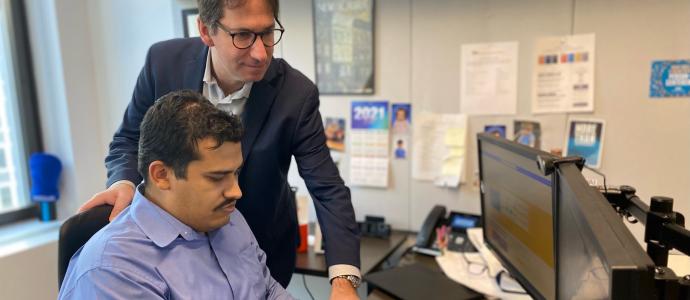When the intellectual and developmental disability (I/DD) field shifted from a medical model focused on treatment to the constellation of deinstitutionalized, community-based support prevalent today, benefits were felt by people with disabilities immediately. In 2022, individualized support based on self-direction is considered the gold standard. But this new system has created a host of challenges including the likelihood that people in need of more support can slip through the cracks of a more fragmented system.
Quality support for children and adults with I/DD has evolved considerably since the dark days of the Willowbrook School, something readily acknowledged by a 2020 report by the Medicaid and CHIP Payment and Access Commission (MACPAC): “While most states’ long-term services and supports for people with ID/DD are largely rebalanced away from institutional care, ID/DD services continue to evolve and move toward full community integration and individualized supports.” Without a one-size-fits-all model, agencies like YAI must focus on potential gaps in support for people whose needs aren’t easily met. That’s where Gary Milchman, a veteran in the I/DD field, comes in.
As YAI’s Senior Regional Director of Programs and Services, Milchman helps the organization provide consistent services to those whose needs are hard to typify. Throughout his 30-plus-year career, he has worked as a behavior intervention specialist, supported children with special needs, developed services for people with traumatic brain injuries, led day and employment services, and has overseen all of YAI’s Manhattan region programs. In a role created to address these specialized populations, Milchman helps lead projects that bring YAI’s know-how to people outside of the organization’s typical scope.
“As a field, we’ve set a fairly high bar,” Milchman said. “We should never take an all-purpose approach. But the more we work to build services and supports that reflect people’s unique desires and goals, the greater the challenges of program design, staffing, and sustainability – particularly given the pressures COVID has placed on providers.”
According to ANCOR’s findings from its 2021 State of America's Direct Support Workforce Crisis Survey, 77% of I/DD providers have had to turn away new referrals. With many agencies forced to cut programs, people with more acute needs will be the ones to shoulder the burden.
As one example, the number of people with I/DD over age 60 in the US is expected to top 1.2 million by 2030. The result? A need for dementia care in an I/DD environment is growing without a ready provider network to meet the demand. YAI has been at work on a scalable model for people with I/DD as they age, seeking support from state and federal governments to pioneer both “aging in place” and magnet programs.
“Decades after de-institutionalization, it stands to reason that services for older people must evolve as our population ages. But creating that unique model demands time, expertise, and science,” Milchman said. “Every day, a long-time YAI resident turns 60. We are running out of time.”
Specialized demands for support have also seen expansion in California, and YAI is on the cusp of opening three behavioral stabilization homes in New Jersey for people with complex needs. YAI has been invited to introduce START in Maryland, where the intervention’s unique approach to people with co-occurring I/DD and mental health needs will address the root causes of behavioral crises, making them less frequent and saving municipalities from high-cost emergency care.
Behavioral stabilization homes and other services that integrate mental health support are crucial areas that often fall through the cracks. According to the MACPAC survey, multiple respondents, “noted an unmet need for behavioral supports and mental health providers who are comfortable and knowledgeable in working with people with ID/DD.” Further, interviewees acknowledged, “the difficulties of collaborating across systems to help people with ID/DD and their families identify and access appropriate mental health services and interventions.”
The need for innovation does not mean that providers are not focused on traditional services. Ashara Edwards, recently named to succeed Milchman as Regional Director for YAI’s Manhattan region, recognizes the value of consistent residential, day, and community programs for people with I/DD who already have a routine that has been optimized for them.
“There’s always a need for high-quality services like the ones we provide every day,” said Edwards. “It’s great for us to expand our wheelhouse and keep learning, but we’ll never lose sight of the services that the majority of people we support rely on.”
Farther afield, Milchman has directed a long-term consulting project in Saudi Arabia, where a team trained more than 70 people to provide first-of-its-kind support for young people with myriad needs who had never before been part of an identifiable service system.
“If there’s a need out there, we say ‘yes’ and then, through our expertise, we figure it out,” he said. “We’re not intimidated or pushed back from looking at a project. I think that’s what gives us an entrepreneurial edge. We have the skills and know-how to learn anything, and we should be able to offer that to others. And our track record so far shows we haven’t been wrong yet.”

